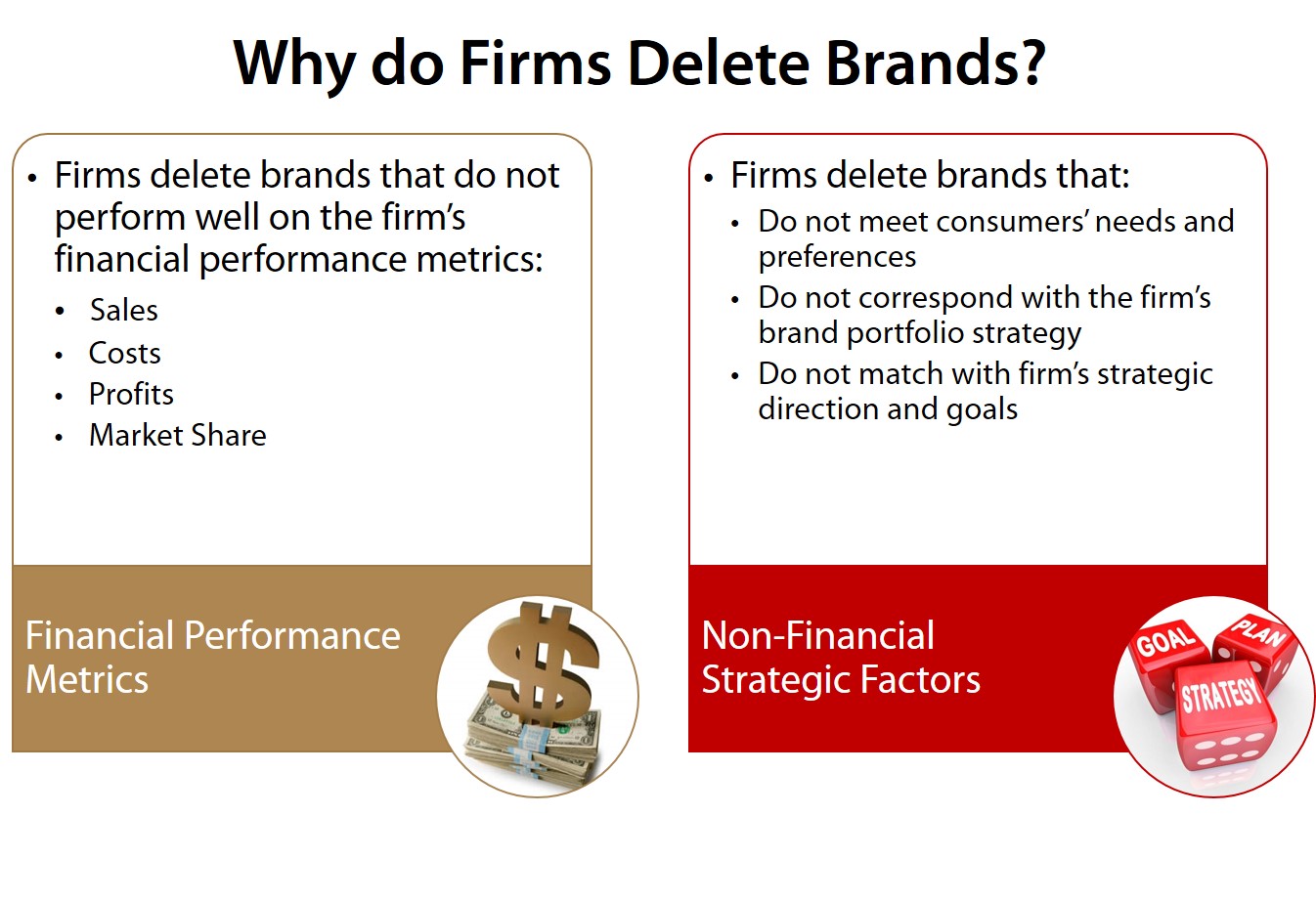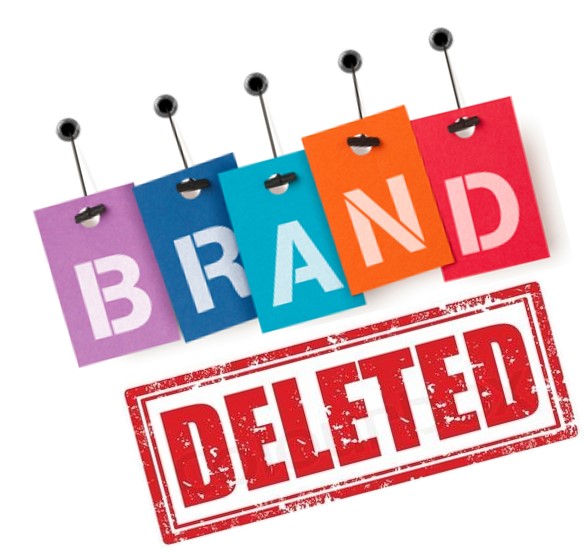- General Motors deleted Hummer, Oldsmobile, Saturn, and Pontiac in the last decade.
- Unilever trimmed its brand portfolio from 1,600 to 400 brands in early 2000s.
- Procter & Gamble deleted more than half its brands recently.

We frequently learn about firms culling their brand portfolios. However, do we wonder, “why do firms delete brands?” My empirical research attempts to address this important question based on findings from qualitative analysis of in-depth interviews with fifteen brand professionals from diverse countries and industries.
Brands can produce a competitive advantage for the firm and thereby superior financial performance. Brand managers regularly tackle strategic challenges related to brand portfolio management, such as what brands to create or acquire, which ones to modify, and which ones to leverage. However, managers typically devote relatively less managerial time, attention and effort to the strategic decision of discontinuing or deleting a brand from the portfolio. This is because brand deletion is a not only a complex strategic choice but also an emotionally charged controversial decision in a firm.
Many firms own bulky brand portfolios in which generally only 20% of the brands contribute 80% of profits. It makes logical sense to delete weak brands that do not contribute to a firm’s financial performance. The resources freed from the deleted brands can then be redeployed to grow the stronger brands in the portfolio. However, this research found that in addition to financial factors, firms also consider three non-financial strategic factors while deleting brands.
- A brand that is not able to meet changing needs of consumers, does not offer value to the consumers, or does not keep up to the market trends is considered for deletion.
- Firms delete brands that are not in synchronization with other brands in the portfolio. Reducing complexity and redundancy from a huge brand portfolio is very important to protect the power brands’ image from diluting, to ensure optimum allocation of resources, and to avoid consumer confusion.
- Brands that are not strategically aligned with their firm’s strategic direction and goals are deleted.
A firm that does not ignore this crucial and complex decision of brand deletion is geared for growth and profitability.


Leave a Reply